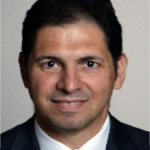
Advancing ED Practice in Value-Based Care
By addressing possible missed diagnoses of CKD and other chronic illnesses, emergency physicians have substantial potential to improve population health. The increasing shift to value-based care, which ties payments to health outcomes, has expanded the role of the emergency department from treating acute episodes to improving the value of the entire system when possible. For example, in 2019, ACEP proposed an innovative value-based payment model, the “Acute Unscheduled Care Model (AUCM): Enhancing Appropriate Admissions, A Physician-Focused Payment Model (PFPM) for Emergency Medicine.”7 The Department of Health and Human Services endorsed this proposal, which provides incentives for emergency physicians to safely discharge Medicare beneficiaries from the emergency department by facilitating and rewarding postdischarge care coordination.
Explore This Issue
ACEP Now: Vol 39 – No 08 – August 2020These payment model trends, accompanied by advancing technology in data interoperability, present a new opportunity for emergency physicians to recognize patients at risk of serious chronic conditions continuing to go undiagnosed and therefore unmanaged. This expanded focus will lead to increased patient awareness and education. This, in turn, can motivate individuals to seek and obtain the care they need in a timely manner, leading to better health outcomes and higher health care value.
The federal government may lead this initiative, but there is an equally important role for private payers in the system transition. Private payers can work with emergency departments on alternative payment models ranging from population-based quality measures to more holistic total cost-of-care models, providing additional incentive to move this work forward.
Emergency physicians play a critical role in our nation’s health system and have an amazing opportunity to advance our nation on the path to value-based health care. Nowhere is this more evident than in the benefits that can be realized with earlier identification and management of chronic diseases such as CKD.
The authors thank William Shrank and Courtney Brown, Humana Inc. and Suzanne Dixon, Humana Healthcare Research for providing writing support and contribution.
Disclosure: Dr. Vassalotti is a consultand on type-2 diabetes health services and population health for Janssen, Inc. and on the CKD advisory board for RenalytixAI, Plc.
 Dr. Agarwal is vice president of home solutions at Humana Inc. in Louisville, Kentucky.
Dr. Agarwal is vice president of home solutions at Humana Inc. in Louisville, Kentucky.
 Dr. Vassalotti is chief medical officer of the National Kidney Foundation and Clinical Professor, specializing in nephrology, at Mount Sinai Health System in New York City.
Dr. Vassalotti is chief medical officer of the National Kidney Foundation and Clinical Professor, specializing in nephrology, at Mount Sinai Health System in New York City.
 Dr. Zhou Yang is research consulting lead in Humana Healthcare Research at Humana Inc. in Atlanta, Georgia.
Dr. Zhou Yang is research consulting lead in Humana Healthcare Research at Humana Inc. in Atlanta, Georgia.
Pages: 1 2 3 | Single Page


No Responses to “Opinion: Should Emergency Departments Watch for Chronic Kidney Disease?”